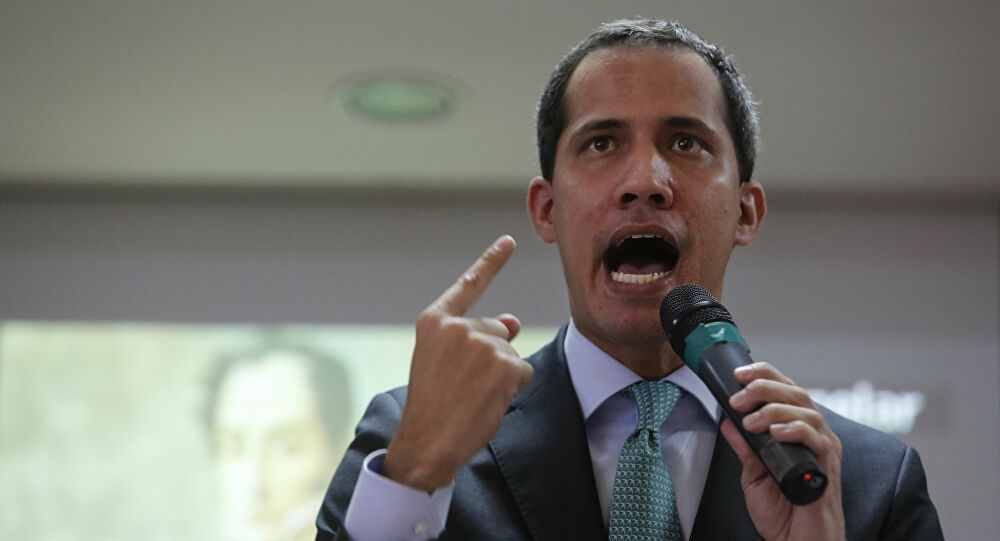RIO DE JANEIRO, BRAZIL – The self-proclaimed President of Venezuela, Juan Guaidó, urged the Argentine government on Wednesday, September 30th, to explain if it endorses the words of the country’s ambassador to the OAS, Carlos Raimundi, who downplayed the recent UN report which recounts the illegal repression in Venezuela and denounces multiple and serious human rights violations by Nicolas Maduro’s regime.

“I would like to know if the representation of your ambassador to the OAS is the representation of the chief executive in Argentina. If relativizing the pain, the human suffering in Venezuela represents the executive branch in Argentina,” said Guaidó in an interview with journalist Eduardo Feinmann broadcast by A24.
He added: “We cannot turn our faces away while there is a silent genocide in Venezuela. We cannot relativize the pain. There is no neutral position on human rights, on dignity and fundamental rights.”
In his address during the OAS Permanent Council special meeting, Ambassador Raimundi assured that “Venezuela has experienced a strong siege of interventionism” which is why “there is a biased assessment of what human rights violations are in specific countries.”
He also said that Argentina “does not make an ideological reading of human rights” and that the country is “focused on the suffering individual. “For my country, human rights are not an instrument to take an ideological stand,” he said.
Raimundi’s statements contrasted sharply with those made by other countries in the region that have been adamant in recognizing the document presented by the UN High Commissioner for Human Rights, Michelle Bachelet, and in condemning the Maduro regime. These include Uruguay, Brazil, Ecuador and Colombia.
Uruguay President Luis Lacalle Pou, for instance, expressed its “repudiation of the flagrant human rights violations” and “strongly condemned Maduro’s dictatorship”. “Arbitrary disappearances and detentions are inadmissible,” states a paragraph of the statement, collected by the foreign ministry of the government concerned.
Colombia, the country that requested the extraordinary meeting, highlighted that the FFM (Fact Finding Mission) “has made it clear that Maduro is directly responsible for these crimes against humanity.”
“We ask ourselves if the basic conditions for an election are in place, and the obvious answer is no”, he added, in reference to the legislative elections called by the regime for December 6th, which have been rejected by the Venezuelan opposition and many in the international community.
In his statement, Venezuelan opposition politician Julio Borges said that the UN mission’s report makes it clear that human rights violations are a pattern in Venezuela: “The FAES (Special Action Forces) have killed over 7,000 people since their creation. This year alone they have killed more than 2,000 Venezuelans, they have a license to kill, the famous code 80.”
Furthermore, he said that Venezuela is seeking a path to justice: “We want countries to help us renew the mandates and open judicial proceedings so that the fight is not only an issue of the ICC, but that our justice may begin to investigate those who have committed these crimes.”
The United States Ambassador to the OAS, Carlos Trujillo, also spoke about the crimes against humanity in the country: “After these demonstrations there is no doubt that the brutal control of the illegitimate Maduro regime has led to massive human rights violations. (…) It has also committed electoral fraud to undermine democratic institutions.”
On Wednesday afternoon, the European Union warned the regime that it will not recognize the parliamentary elections – to which it was invited to observe – as legitimate unless they are deferred. The Guaidó government has stated from the outset that it will not participate in the elections because it considers them fraudulent.
“We are not going to be open to fraud. Those who were hesitant have even said that if the EU does not come, they will not participate. The EU has made it clear: they are not going to take part in this fraud,” said Guaidó, who has pointed out that they are not looking for a deferral of the elections, but rather for transparent conditions.
The last 21-page UN report points out that Nicolás Maduro and his Ministers of Defense, Vladimir Padrino López, and of the Interior, Néstor Reverol, are key figures in the serious crimes committed by the country’s security forces.
The report provides extensive information “that proves that state authorities -both at the presidential and ministerial levels- exercised power and supervision over the civilian and military security forces, and the bodies identified as the perpetrators of the documented violations and crimes.”
The UN mission found many acts of torture and other forms of abuse. In a list, it identified nine techniques used by Chavista forces to physically harass and humiliate political prisoners: severe beatings; asphyxiation with toxic substances and water; stress positions; prolonged solitary confinement in harsh conditions; sexual and gender-based violence, including forced nudity and rape; cutting and mutilation; electric shocks; use of drugs to induce confessions; and psychological torture.
The investigation also detailed 33 cases (21 men and 12 women) in which the Bolivarian National Intelligence Service (SEBIN) arrested, detained and arbitrarily tortured or abused individuals for political motives. The majority of detentions occurred after a period of surveillance and investigation.
Furthermore, they detail that torture was typically committed during interrogations to extract confessions or intelligence, including phone and social media passwords, or to coerce detainees to incriminate themselves or others, particularly high-profile opposition leaders, in the perpetration of crimes.
Source: infobae

